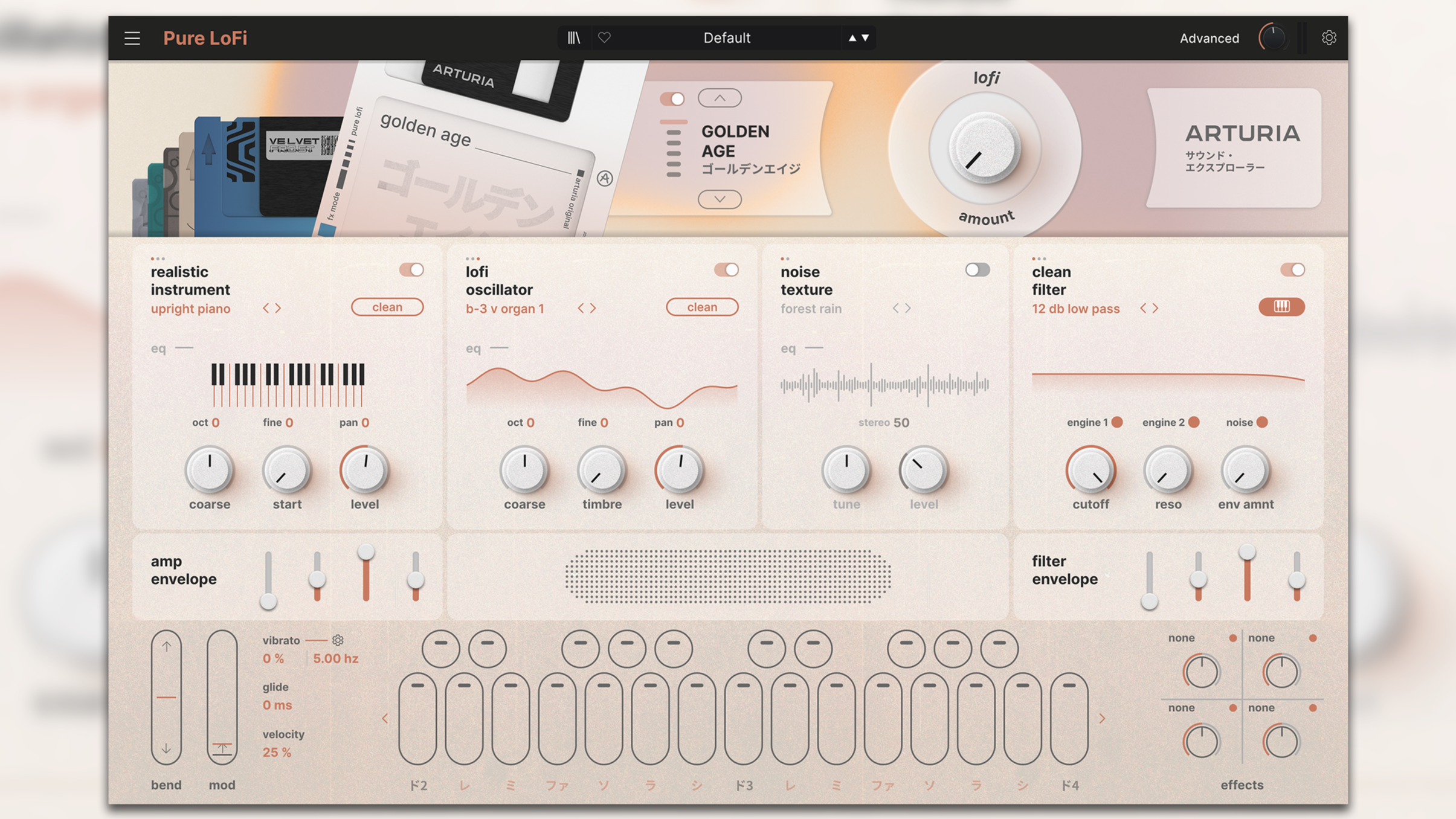“I wanted to design a pedal range that’ll last 10, 20, 30, 40 years... It could be something you could bequeath to those you love”: Exquisite stompboxes, built to last a lifetime, meet Red Witch’s Apothecary Series
The Apothecary Series includes fuzz, overdrive, phaser, chorus/vibrato and modulated delay, and designer Ben Fulton says they're so durable they might outlast us all
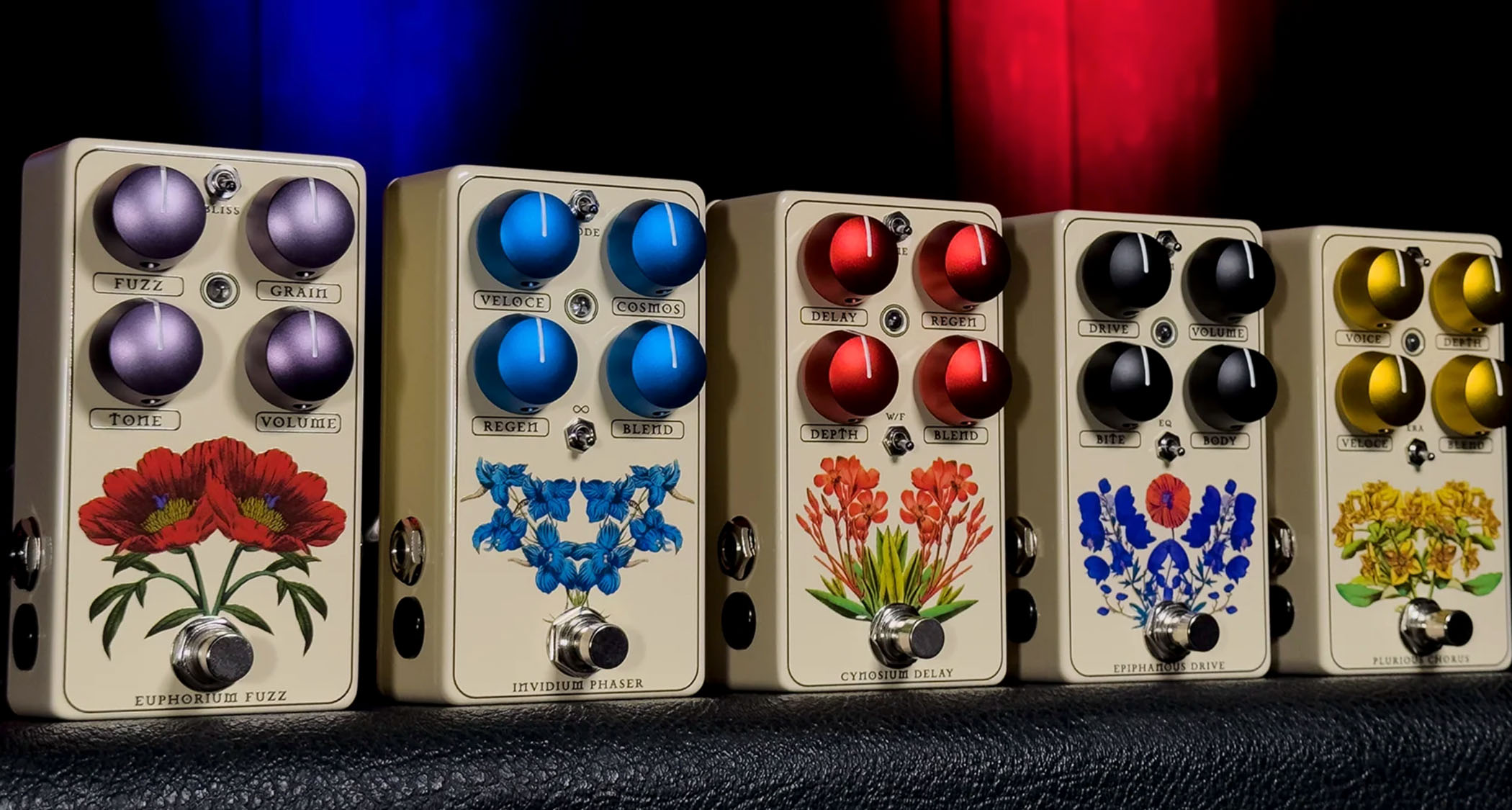
Red Witch has unveiled the Apothecary Series, an aesthetically exceptional range of guitar effects pedals that prove once more than stompboxes can be a thing of beauty.
C’mon, just look at those colour-coded aluminium controls and the floral aesthetic. These are unmistakably the work of Red Witch’s Ben Fulton. He’s like the Claude Monet of pedal design. All of his preoccupations are present and correct. They look cool. They sound amazing. And they are built to last.
The series comprises the Euphorium Fuzz, Epiphamous Drive, Invidium Phaser, Cynosium Modulated Delay and the Plurious Chorus pedal, all of which are available now, direct from Red Witch, or exclusively via Sweetwater.
“I’m really thrilled with how they sound, how they look, and then also the reliability of them,” says Fulton, and these really are built tough.
While the majority of stompbox switches are guaranteed for 20,000 to 30,000 cycles, the Apothecary series features a Cynosium footswitch that is guaranteed for 100,000 cycles. You’ll find Neutrik sockets, too. These components have been hand-wired to improve reliability.
“It’s a more cost effective way to mount sockets on a PCB, but the problem is if the nut comes a little loose and the foot goes the wrong place, you can not just damage the socket, but can damages the circuit board,” says Fulton. “So I just wanted to avoid all of that.”
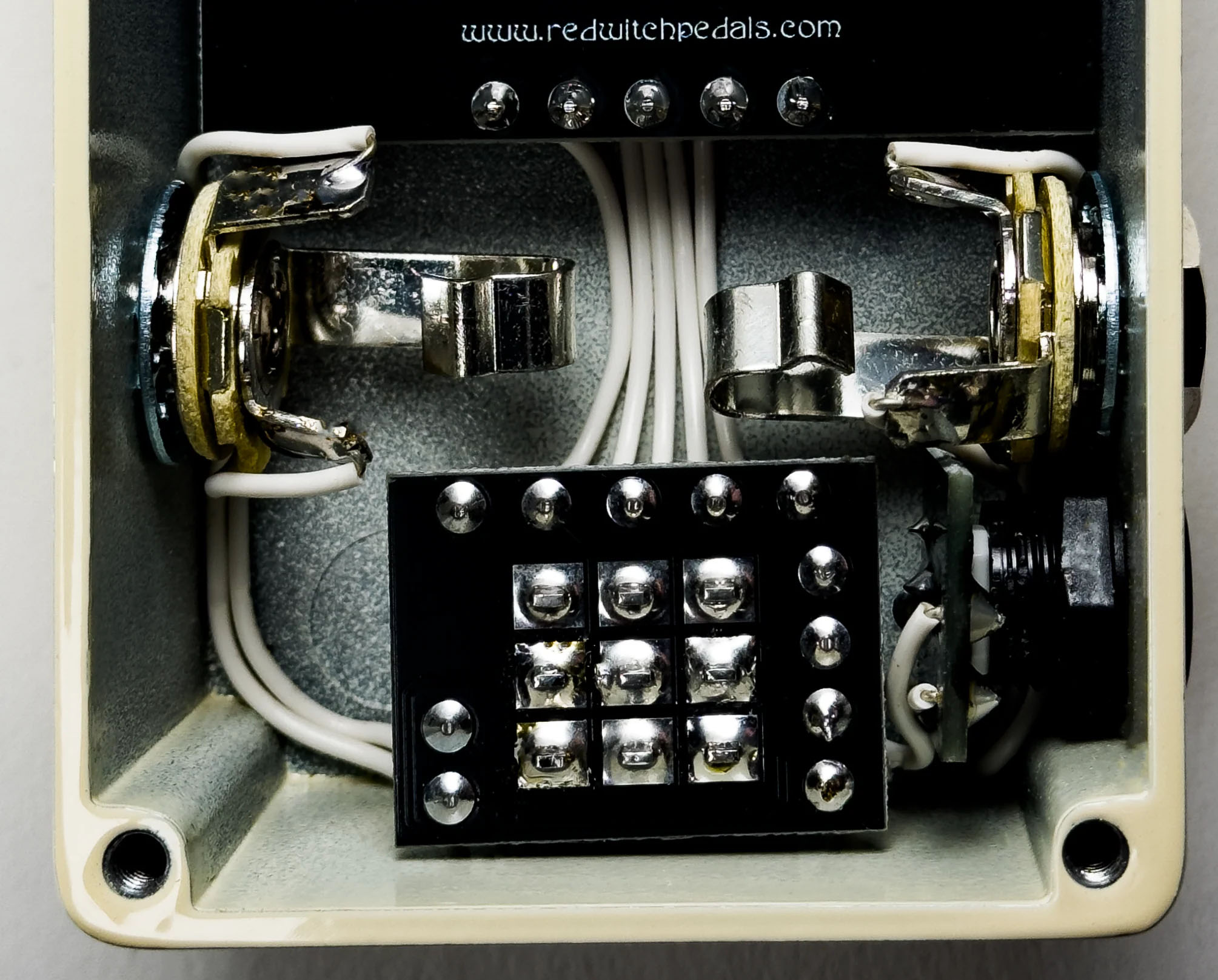
Red Witch backs this up with lifetime warranty to the registered owner. Fulton says he wanted make a pedal that could be handed down through generations.
Get the MusicRadar Newsletter
Want all the hottest music and gear news, reviews, deals, features and more, direct to your inbox? Sign up here.
“I wanted to design a pedal range that’ll last 10, 20, 30, 40 years,” he says. “It could even outlast yourself! It could be something you could bequeath to those you love.”
All Apothecary pedals share a similar four-knob enclosure, with one or two toggle switches for changing modes and voicings. They share the DNA of Red Witch classics of yore (what was that about pedals as heirlooms again?).
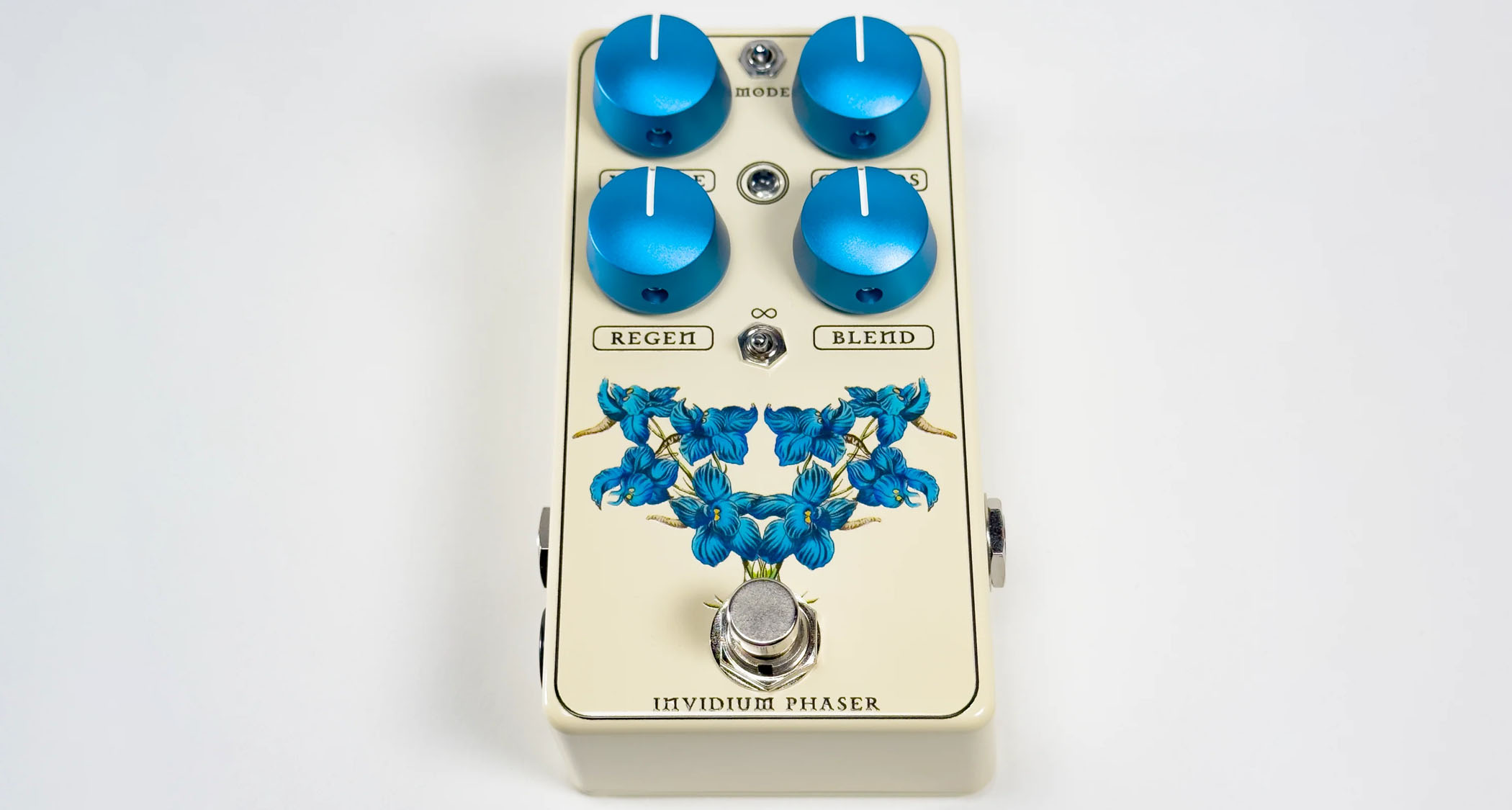
Take the Invidium Phaser. This is the successor – spiritual, familial and otherwise – to the Moon Phaser, a long out of production and one of Fulton’s greatest hits. It is a FET-driven analogue phaser pedal, that features the “tremophase” mode of the Moon Phaser, which combines the amplitude modulation with the phase-shifting, and a two-stage phaser.
The Cosmos dial controls “how shimmery or how throbby” the tremophase behaves. Regen feeds some of your phased signal back into the phaser for more intense and resonant modulation – the Infinity toggle switch makes this, well, expanded dramatically. There’s an all-important Blend control and of course a rate knob (aka Veloce).
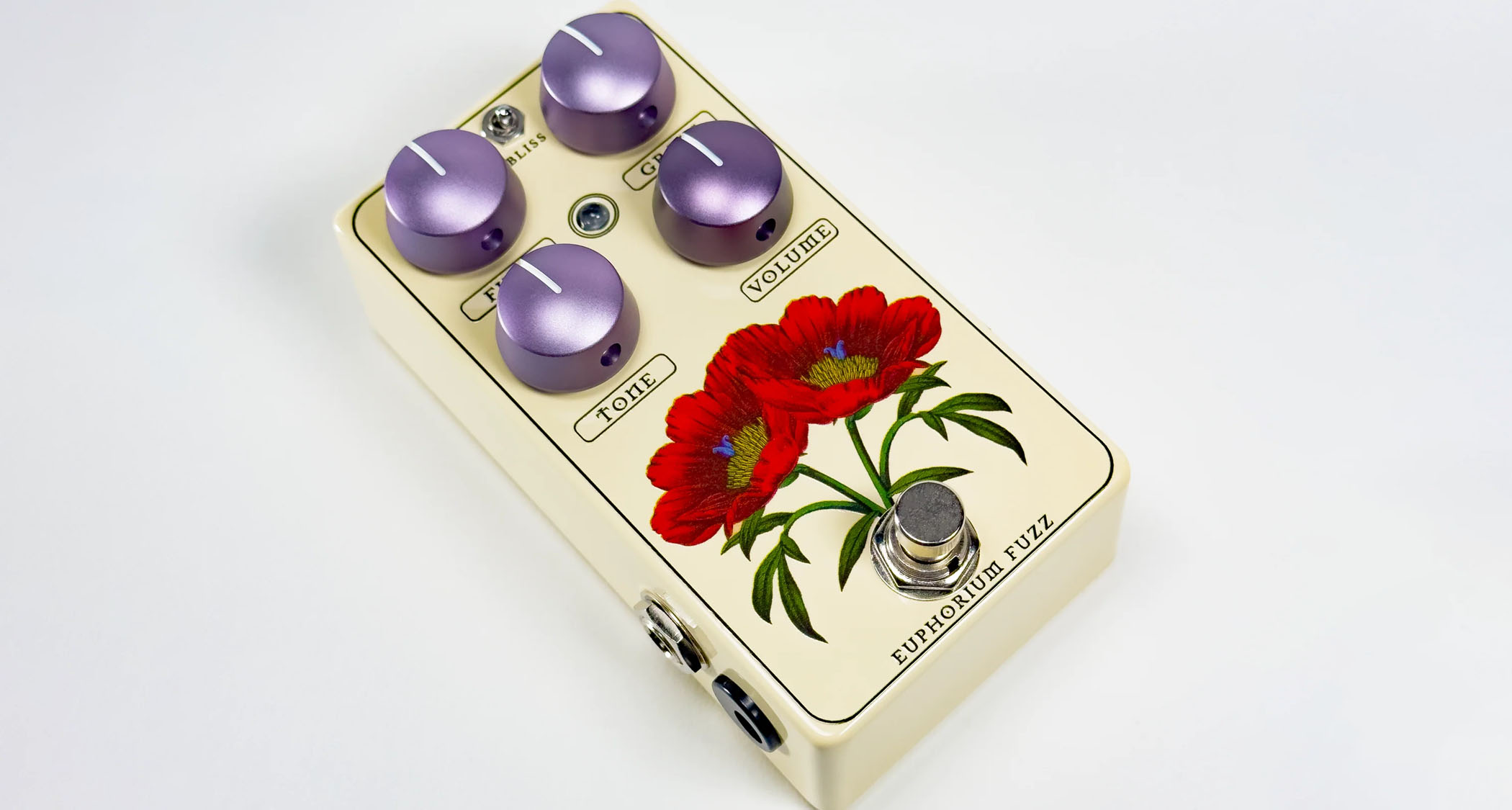
The Euphorium Fuzz is a silicon fuzz pedal with a pair of circuits under the hood. Activating the Bliss mode places these circuits in series with one another. Adjust Fuzz, Tone and Volume to tase. See the Grain dial for the“sputter” control from the Fuzz God series.
“From soaring, laser like fuzz to ‘Jimmy Page’s germanium fuzz pedal in the sun too long at an outdoor festival on Zeppelin’s first USA tour’ – it’s all their for you,” reads the blurb.
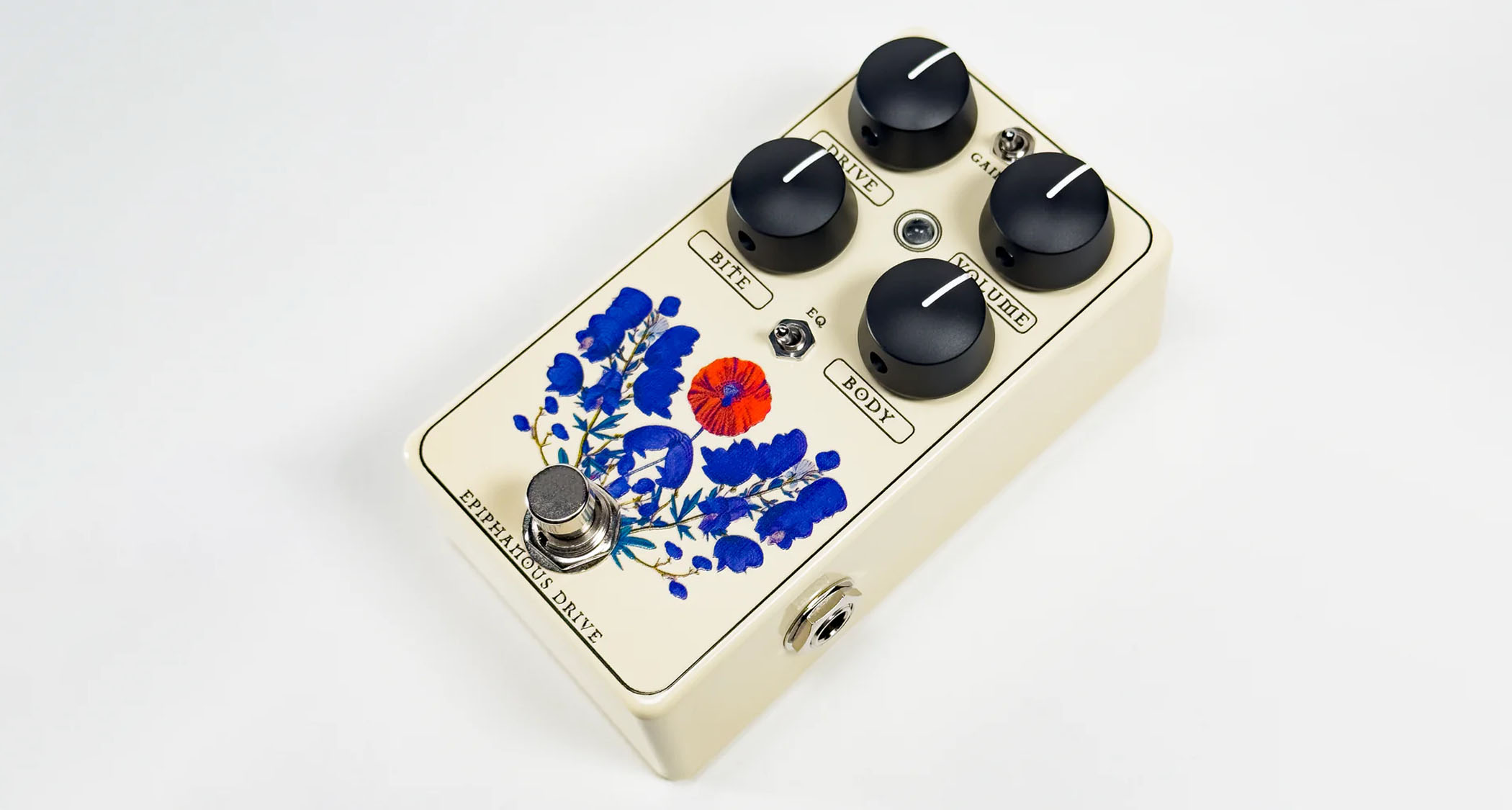
The Epiphanous Drive is similarly inspired by Led Zeppelin and is described as “a beautiful, uncompressed, transparent Plexi-esque” overdrive pedal.
The Bite and Body EQ controls play around with the overdrive frequencies and change its attack, its very character. These can be switched out via a toggle switch in favour of Fulton’s own EQ preset, “Heaven.” It is stackable.
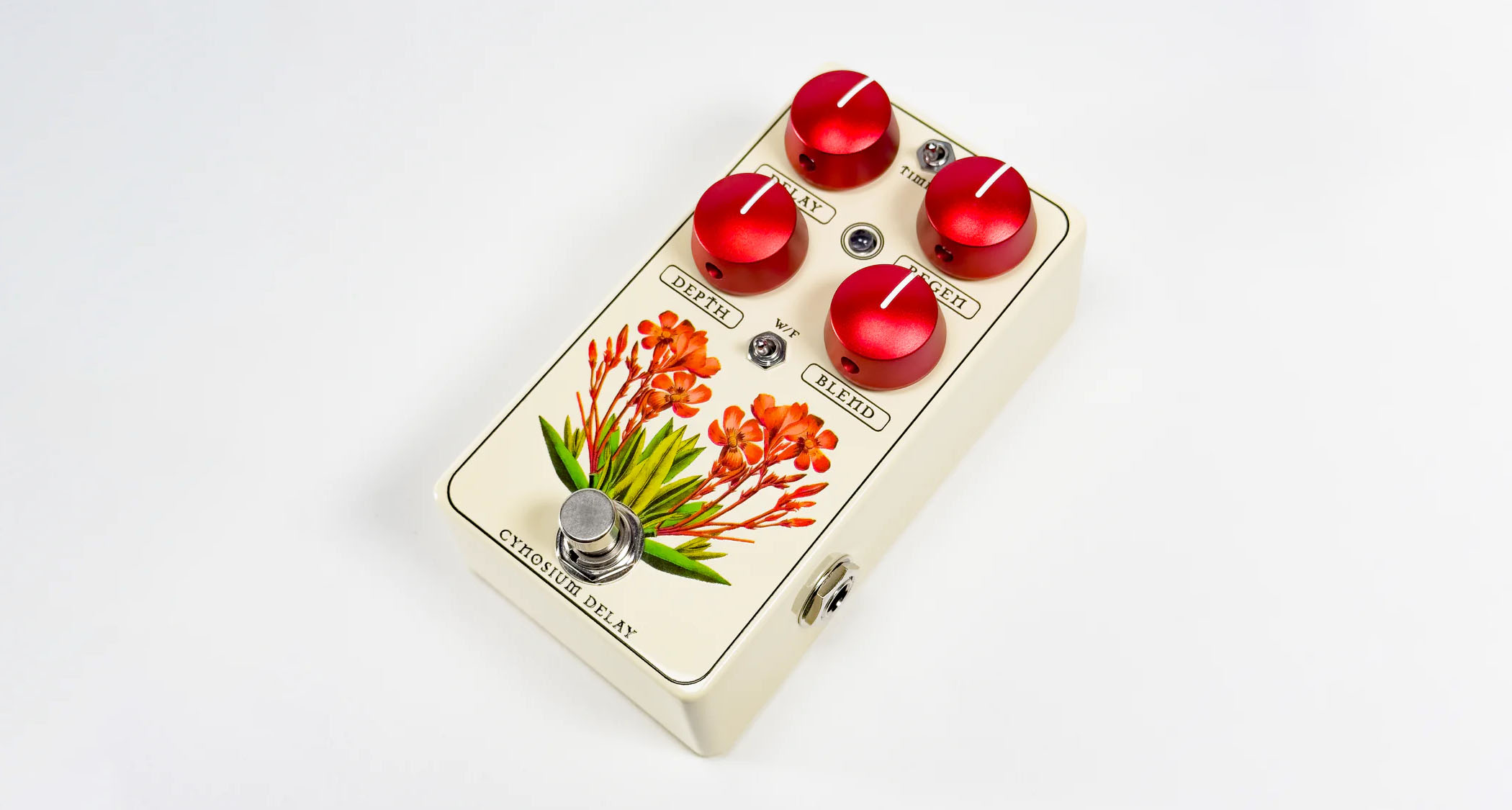
Fulton says the Cynosium Modulated Delay was inspired by a long-held love of tape echos and they’re wobbliness and the players, of course, who have used them. It draws its lineage – circuit-wise – from the Violetta and limited edition Magesteria delay pedals.
The headline spec on this is that it takes the tape echo paradigm and extends the delay time to a whopping 2000ms. And of course you can mess around with the wow and flutter and get some pretend mechanical wear and tear on the go.
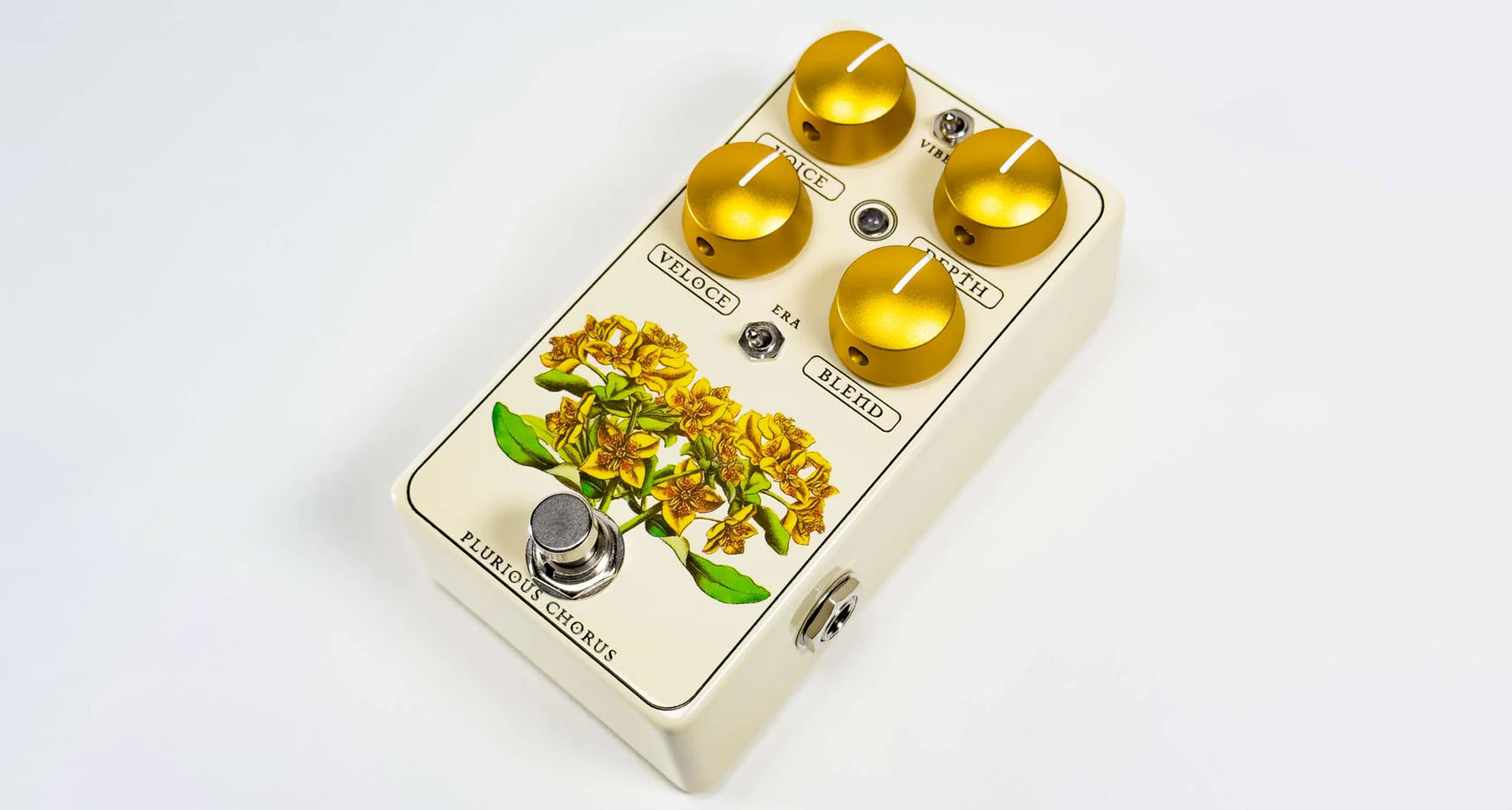
Finally, there is the Plurious Chorus Vibrato. It is descendent from the Empress Chorus that Andy Summers was so fond of. It is a BBD-driven analogue chorus with a 2048 stage to make it quieter.
It’s also more subtle, more wild, and deeper than your common or garden variety analogue chorus, and we’d expect nothing less.
This quality does not come cheap. These are priced $249. But, it’s worth repeating, they have a lifetime warranty. You often get what you pay for. An heirloom pedal? Why not. It worked for tomatoes.
See Red Witch for more details and to order, or head over to Sweetwater to grab one.
Jonathan Horsley has been writing about guitars and guitar culture since 2005, playing them since 1990, and regularly contributes to MusicRadar, Total Guitar and Guitar World. He uses Jazz III nylon picks, 10s during the week, 9s at the weekend, and shamefully still struggles with rhythm figure one of Van Halen’s Panama.
You must confirm your public display name before commenting
Please logout and then login again, you will then be prompted to enter your display name.
"An unholy amount of features in a standard-sized compact pedal": Mooer Prime Minimax M2 Intelligent Pedal review
“The most musical, unique and dynamic distortion effects I’ve ever used”: Linkin Park reveal the secret weapon behind their From Zero guitar tone – and it was designed by former Poison guitarist Blues Saraceno’s dad






